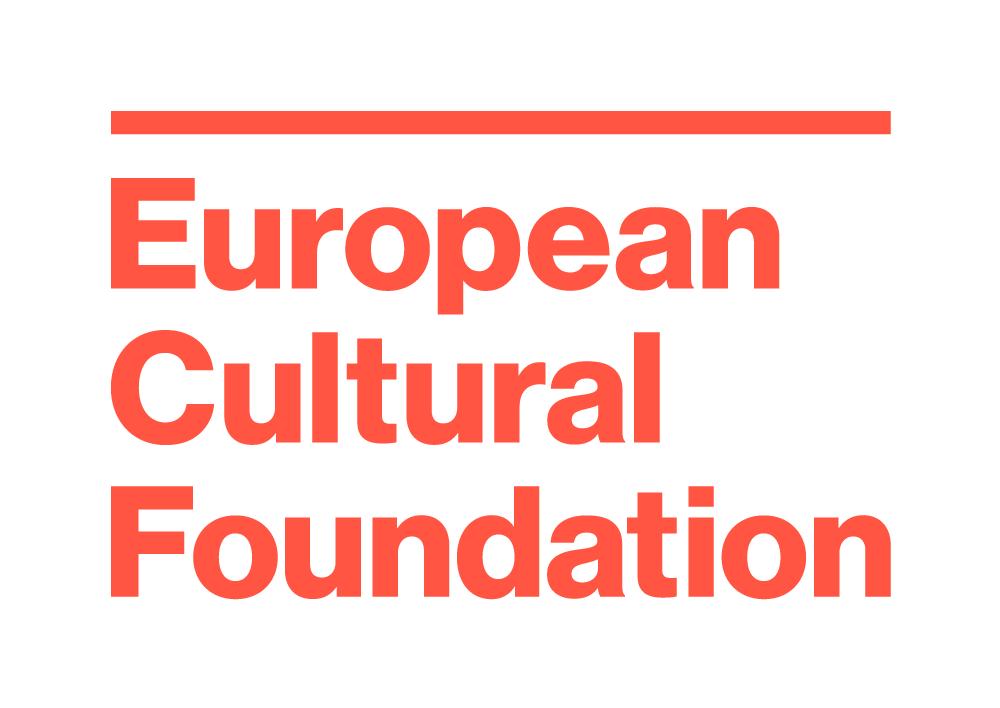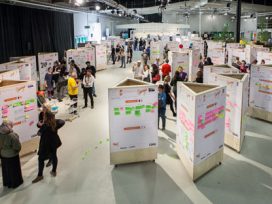Culture WITH people, not just FOR people!
Received notions of artistic and social practices belonging to separate spheres of society are fading away, writes Agnieszka Winiewska of Krytyka Polityczna (Poland). The commons is where cultural and social activists meet with the broader public and, together, create a genuinely participatory culture.
Culture as action
On a local, neighbourhood level, culture has become a language for describing reality, for making the historical past familiar, for exploring one’s surroundings. Art has entered public space not merely as decoration but as commentary, inspiring dialogue and reflection on the role of that space, as in the case of Joanna Rajkowska’s Oxygenator (Grzybowski Square, Warsaw, 2007), or as a form of warfare, best instantiated in Julita Wójcik’s Rainbow (Savior Square, Warsaw, 2012), which was repeatedly burned by homophobic and nationalist hooligans and renovated by volunteers. Artists meet sociologists, anthropologists, historians. This is not limited to Warsaw: in Ostrowiec Swietokrzyski, a town with some 70,000 inhabitants, cultural activists made an exhibition reminding people about a workers’ colony founded in the city nearly a hundred years ago. They consulted historians and worked with tools used in recording oral history. The exhibition was staged in the middle of the town square.
This is the kind of culture we need: made in touch with people, in collabouration with them, together; accessible to as many as possible. Only half a year earlier the very same activists initiated a debate on the renovated town square. Some time before, the authorities had gone to considerable lengths to have the square paved with granite, having forgotten to include in their scheme the needs of the locals. The square was turned into a granite desert. The activists reacted: they succeeded in calling an open debate with the mayor where ideas to reclaim the town square for people were presented. One was to turn the square into a place that welcomes culture, meaning not an occasional concert by a celebrity star from Warsaw, as is often the case in provincial towns, but actions that are not as much “aimed at” the public as they are performed “in collabouration with” them.
For some reason, at school we are taught quite a lot about the history of Poland, they treat us to more than a handful of world history, while little space is left for tales about our own neighbourhood. We end up knowing more about columns in ancient Greece than about our local town hall. It is simpler with large cities: Gdansk’s is the history of Solidarity, Wroclaw had the Orange Alternative, Warsaw is all about its 1944 uprising. It is around those historical events and facts and narratives about them that a community is built. We have founded our national community on the tales of heroic struggles. What about local communities, how do we go about building them? An answer is offered by those who have not left their hometowns for larger cities sometimes to leave the larger cities for Warsaw; by those who invite to their hometowns artists and cultural activists from other places.
Culture as inclusion
The most thrilling phenomena in culture in recent years have taken place in the key sphere where culture is no longer made for an audience but is instead more often perceived as doing something with the audience as participants. This is where the practice of cultural activists meets that of social activists. It suddenly occurs that both groups seek areas and modes that welcome collabouration. They create spaces where working together is more important than the success of an individual. The line between activities that are clearly artistic and those that are clearly social is fading away.
What about instances of cultural actions, new models of operating cultural institutions, where the viewer is an active participant, not merely a consumer of a finished work? Have we got any? Laznia Nowa Theatre, at the Nowa Huta post-industrial district of Cracow, invites people to paratheatrical meetings that deal with important social issues. Praska Biblioteka Sasiedzka (Praga Neighborhood Library) in Warsaw is a place where the locals come not only to discuss books, but also to meet and socialize.
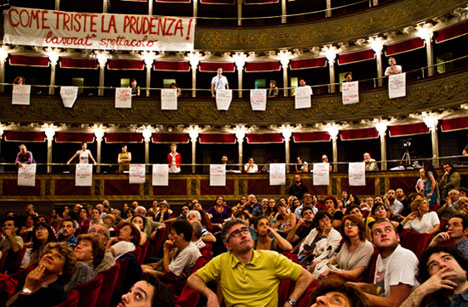
The Teatro Valle, Rome was occupied from June 2011 onward and became a legally recognized commons, sparking a new wave of commoning across Italy and Europe. Photo: Tiziana Tomasulo.
The employees of Teatro Valle, wanting to prevent privatization of their facility, started to occupy it.1 They subsequently opened the space to the public, turning it into a squat, initiating artistic and social activity founded on new principles of collabouration between the theatre people and spectators. The theatre has ceased to be a place which you frequent all dressed up, accessible only to the chosen few. It has become a common space.
Culture as commons
This kind of theatre – not only for the elites – was fought for, on more than one occasion, by activists from Kalisz, in central Poland who fought against the absurd pricing policy of the Kalisz Theatre Meetings. When the director of the local theatre said in 2013 that one can sacrifice one’s winter holidays for theatre on the opening day of the festival some of the spectators showed up wearing goggles, skis and skiing poles in their hands. Those people were actually the former patrons of the event who had to quit going to the KTM, confronted with exorbitant prices charged by the management. Tickets for some of the guest performances sold for roughly the same as the total cost of going to another city and watching the production in its original venue. Who were the ideal audience of the KTM, then? It would seem, they were the very people who could afford winter holidays. The protesters quoted Sebastian Majewski of the Stary Teatr: “Theatre is not for the elites. Theatre is for everyone.”
Sadly, it is still more popular to consider culture as a commodity, with a price tag attached. As long as people are willing to pay the price and buy an expensive ticket in Kalisz or anywhere else, the management will not see any reason for making it more affordable. The stage is ruled by the laws of the market.
But even from a purely economic point of view, the prevalence of this mindset is pernicious enough, as it excludes from civilization a good portion of society, denying them cultural skills, which are crucial in raising a country’s GDP.
Little by little, the debate on culture is approaching the parallel debate on the concept of commons. Culture is like public transportation: everyone should be entitled to it, with no car owners privileged over the users of buses and trams.
The ever more audible discussions on the city and public space in Poland, on commons in Europe, have set in motion a reconfiguration of the ways in which we think. We have started to ask ourselves questions like: ‘Who is the city really for: only for those who can afford it or for all its inhabitants? Is it parks and public spaces for everybody that we need more of, or is it parking lots? Are we going to let the business of privatizing entire swathes of our cities, only to be turned into shopping malls, go unpunished? Have streets and plazas with nothing but banks all over them anything to do with spaces for human beings?
Go wherever you like in Europe, and talk to activists and art workers, there’ll always be someone talking about commons, goods understood as common resources, accessible property: both physical goods, such as public space, and virtual ones. Artists initiate social debates with their works, activists resort to tools traditionally associated with artists. This is what big European institutions are interested in. They perceive the artists-social activists as partners. This is the kind of culture we need: made in touch with people, in collabouration with them, together; accessible to as many as possible.
Culture as a social glue
Culture is not there to pay, to bring profit, not in the sense in which making business has to bring profit. Culture counts in a different way. It is its role in creating a community, in narrating the world, in establishing relationships that matters.
In a world where individualism has killed cooperation and the capacity for being and working together, where cooperation sucks and self-reliance seems so cool, we are smoothly and consistently dismantling all social ties. Why am I supposed to do something with my neighbours? I’d rather do it alone.
Culture is not there to make money, to generate profit, not in the sense in which business has to create profit. I am writing this at my cousin’s house. He has small children. In his backyard, there is a trampoline, a large one, fitted with a mesh enclosure, for safety. I can see an identical one roughly a meter away, in a neighbour’s backyard, and another one, a little farther off, at the neighbour’s neighbours. Each child is jumping on its own trampoline. Will those children want to do anything together in the future? Why won’t their parents get together and buy one trampoline for all of them to share? Would they be able to agree over whose backyard should have the trampoline and how to split responsibility of taking care of it between them? Or, rather, no one would like to keep the trampoline in case a child should get hurt and then whose fault would it be? This is the kind of society we are building: lonely children on their trampolines. And only a few children at that. Most will only be able to watch from behind the fence.
Cultural initiatives that challenge this extremely individualized model of the world are worth closer attention, as they help us re-establish social ties and our trust in others.
There are enough large festivals in large cities. At such festivals, we can be no more than spectators, whilst what we need are actions that offer the opportunity to participate. Let’s not fool ourselves: for this kind of culture to happen, state assistance is needed. At this junction, one cannot but take issue with J.F. Kennedy’s “Ask not what your country can do for you – ask what you can do for your country”. Cultural activists have taken the first step: they have done something for their country; now is the time for the country to respond: offer support, recognition, means. Subsidizing activities is not enough: though essential, it is limited to sustaining individual projects over the period from June through December, with security and long-term planning being out of the question. Local, common cultural endeavours have to be taken seriously. They deserve it.
Published in partnership with the European Cultural Foundation
The Teatro Valle is a theatre built in 1727 by the art patron Marquise Camillo Capranica inside his spectacular Renaissance palace in the historic centre of Rome. The occupation, which started in June 2011, was meant to prevent the municipality from privatising the theatre. In August 2014, the occupants left the Valle peacefully following a relocation order by the municipality. Over the course of these three years, the Valle became a legally recognized commons (Fondazione Teatro Valle Beni Comune) experimenting with collective and grassroots forms of cultural production, urban governance and civic activism and sparking a new wave of commoning across Italy and Europe.
Published 26 April 2016
Original in Polish
Translated by
Mikolaj Denderski
First published by Gazeta Wyborcza (Polish version); Krytyka Polityczna, 25 June 2014 and ECF / Krytyka Polityczna (eds.), Build the City: Perspectives on Commons and Culture, 2015 (English version)
Contributed by Krytyka Polityczna © Agnieszka Wiśniewska / Krytyka Polityczna, European Cultural Foundation / Eurozine
PDF/PRINTPublished in
In collaboration with
In focal points
- Creating the commons in Moldova: The current state of play
- The city belongs to all of us
- No collaborative economy without commons
- Polish culture is turning barren
- Creating the commons in Spain: The current state of play
- The power to refuse
- Culture WITH people, not just FOR people!
- When commoning strategies travel
- A rough guide to the commons
- New models of governance of culture
Newsletter
Subscribe to know what’s worth thinking about.
Related Articles
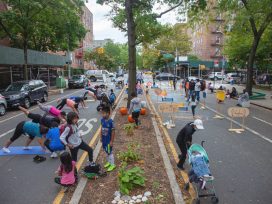
Once referring to natural resources and collectively managed land, the notion of the ‘commons’ has expanded across cultural, scientific and digital realms. Can commonality dodge the threat of capitalist exploitation and develop into an organizational principle for complex societies?
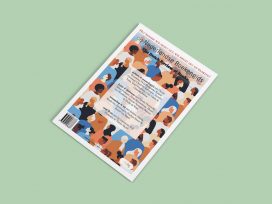
On making commons concrete
The Dutch Review of Books 2/2021
‘The Dutch Review of Books’ presents: the commons, vying for legitimacy between state and capitalism; the void of societal responsibility for #MeToo; and African oral traditions evident in rap music.
